The Bush administration is quietly prodding Musharraf to share authority with his rival as a way of broadening his base and keep him in power.
NEW YORK: The Bush administration is quietly prodding Pakistan President General Pervez Musharraf to share authority with his rival as a way of broadening his base and keep him in power amidst deepening political crisis in the country, media reports said on Thursday.
General Musharraf, an important ally since the September 11 attacks, has lost so much domestic support in recent months that the US officials have gotten behind the idea that an alliance with former prime minister Benazir Bhutto would be his best chance of remaining the president, the New York Times said.
The two met in an unannounced session in Abu Dhabi on July 27, but neither has publicly admitted to the meeting.
Since then, many in Pakistan have heard the rumours and voiced their doubts about the workability and political wisdom of such a deal, and the US officials concede that the proposed power-sharing could come with problems as well as benefits, the report said.
But after weeks of unrest in Pakistan, the US officials say a power-sharing agreement that might install Bhutto as prime minister could help defuse a confrontation in which General Musharraf has already flirted with invoking emergency powers.
The US officials were quoted as saying they fear that General Musharraf could eventually be toppled and replaced by a leader who might be less reliable as a guardian of Pakistan's nuclear arsenal and as an ally against terrorism.
Even if General Musharraf were to insist on remaining as the country's military leader, the US officials say sharing power could bring a more democratic spirit to Pakistan, which has been a quasi-military dictatorship since 1999, when he seized power and ousted Bhutto's successor, Nawaz Sharif.
Even in supporting a power-sharing agreement, the US officials said they were worried that any diminution of his power could only complicate the US' counter-terrorism efforts at a time when al-Qaeda is believed to be rebuilding in Pakistan's tribal areas.
They also say that Bhutto's return could fuel Pakistani nationalism and kindle new calls for Pakistan to distance itself from Washington.
Bhutto has been holding talks in recent weeks with senior Bush administration officials, including Zalmay Khalilzad, the US ambassador to the UN, with whom she met privately late last week, the report said.
Administration officials have taken pains not to endorse a power-sharing agreement publicly, so as not to seem as if the United States is trying to influence Pakistani politics, the report added.
But Secretary of State Condoleezza Rice, the Times said, did discuss the idea of a power-sharing arrangement when she called President Musharraf last week in Pakistan to warn him not to declare emergency powers.
One of the biggest obstacles to any possible deal, the paper said, is whether Bhutto would demand that President Musharraf relinquish his post as army chief of staff before agreeing to a power-sharing deal.
Bhutto has said in the past that she would demand this, but the Times reported that there have been suggestions in Pakistan in recent days that to salvage a deal, she may be willing to concede that point.
The complexity of Pakistani politics makes it difficult to predict what shape a political deal could take, the US officials were quoted as saying.
But a first step could be a decision by General Musharraf to allow open parliamentary elections next month, because Bhutto's party now appears poised to win the largest share of the vote.
A victory by her party could pave the way for Bhutto to become the prime minister, but she would "probably" need Musharraf's support to overcome further obstacles, including a law prohibiting former prime ministers from returning to that office.
In turn, Bhutto's support could be crucial for President Musharraf to win the subsequent presidential elections that would allow him to stay in his current job, the report said.
"We have met with all parties, and have expressed our support for open and fair elections. We have encouraged the parties to strengthen the moderate center of Pakistani politics in order to better deal with the problems of extremism," Sean McCormack, the State Department spokesman, said Tuesday when asked by the Times about the US support for a power-sharing deal.
Teresita C Schaffer, a Pakistan expert at the Center for Strategic and International Studies in Washington, said that the US officials saw a deal between President Musharraf and Bhutto "as a potential lifeline" and one that would get him less deeply involved with the religious parties.
![submenu-img]() Meet IIT-JEE topper with AIR 1, son of government school teachers, he went on to pursue...
Meet IIT-JEE topper with AIR 1, son of government school teachers, he went on to pursue...![submenu-img]() Salman Khan house firing case: One more Lawrence Bishnoi gang member arrested by Mumbai Police
Salman Khan house firing case: One more Lawrence Bishnoi gang member arrested by Mumbai Police ![submenu-img]() Mukesh Ambani to host Anant-Radhika's second pre-wedding function: Trip to start from Italy with 800 guests and end in..
Mukesh Ambani to host Anant-Radhika's second pre-wedding function: Trip to start from Italy with 800 guests and end in..![submenu-img]() Driver caught on camera running over female toll plaza staff on Delhi-Meerut expressway, watch video
Driver caught on camera running over female toll plaza staff on Delhi-Meerut expressway, watch video![submenu-img]() 'If you come and do something here...': EAM S Jaishankar on India's 'message' against terrorism
'If you come and do something here...': EAM S Jaishankar on India's 'message' against terrorism![submenu-img]() Meet IIT-JEE topper with AIR 1, son of government school teachers, he went on to pursue...
Meet IIT-JEE topper with AIR 1, son of government school teachers, he went on to pursue...![submenu-img]() TN 11th Result 2024: TNDGE Tamil Nadu HSE (+1) result declared, direct link here
TN 11th Result 2024: TNDGE Tamil Nadu HSE (+1) result declared, direct link here![submenu-img]() Meet doctor who cracked UPSC exam with AIR 9 but didn’t became IAS due to…
Meet doctor who cracked UPSC exam with AIR 9 but didn’t became IAS due to…![submenu-img]() TN 11th Result 2024 to be declared today; know how to check
TN 11th Result 2024 to be declared today; know how to check![submenu-img]() Meet man who worked as coolie, studied from railway's WiFi, then cracked UPSC exam to become IAS, secured AIR...
Meet man who worked as coolie, studied from railway's WiFi, then cracked UPSC exam to become IAS, secured AIR...![submenu-img]() DNA Verified: Is CAA an anti-Muslim law? Centre terms news report as 'misleading'
DNA Verified: Is CAA an anti-Muslim law? Centre terms news report as 'misleading'![submenu-img]() DNA Verified: Lok Sabha Elections 2024 to be held on April 19? Know truth behind viral message
DNA Verified: Lok Sabha Elections 2024 to be held on April 19? Know truth behind viral message![submenu-img]() DNA Verified: Modi govt giving students free laptops under 'One Student One Laptop' scheme? Know truth here
DNA Verified: Modi govt giving students free laptops under 'One Student One Laptop' scheme? Know truth here![submenu-img]() DNA Verified: Shah Rukh Khan denies reports of his role in release of India's naval officers from Qatar
DNA Verified: Shah Rukh Khan denies reports of his role in release of India's naval officers from Qatar![submenu-img]() DNA Verified: Is govt providing Rs 1.6 lakh benefit to girls under PM Ladli Laxmi Yojana? Know truth
DNA Verified: Is govt providing Rs 1.6 lakh benefit to girls under PM Ladli Laxmi Yojana? Know truth![submenu-img]() Remember Harsh Lunia? Just Mohabbat child star, here's how former actor looks now, his wife is Bollywood's popular...
Remember Harsh Lunia? Just Mohabbat child star, here's how former actor looks now, his wife is Bollywood's popular...![submenu-img]() Mother's Day 2024: Bollywood supermoms who balance motherhood, acting, and run multi-crore businesses
Mother's Day 2024: Bollywood supermoms who balance motherhood, acting, and run multi-crore businesses![submenu-img]() Rocky Aur Rani's Golu aka Anjali Anand shocks fans with drastic weight loss without gym, says fitness secret is...
Rocky Aur Rani's Golu aka Anjali Anand shocks fans with drastic weight loss without gym, says fitness secret is...![submenu-img]() In pics: Ram Charan gets mobbed by fans during his visit to Pithapuram for ‘indirect campaign’ for uncle Pawan Kalyan
In pics: Ram Charan gets mobbed by fans during his visit to Pithapuram for ‘indirect campaign’ for uncle Pawan Kalyan![submenu-img]() Streaming This Week: Yodha, Aavesham, Murder In Mahim, Undekhi season 3, latest OTT releases to binge-watch
Streaming This Week: Yodha, Aavesham, Murder In Mahim, Undekhi season 3, latest OTT releases to binge-watch![submenu-img]() Haryana Political Crisis: Will 3 independent MLAs support withdrawal impact the present Nayab Saini led-BJP government?
Haryana Political Crisis: Will 3 independent MLAs support withdrawal impact the present Nayab Saini led-BJP government?![submenu-img]() DNA Explainer: Why Harvey Weinstein's rape conviction was overturned, will beleaguered Hollywood mogul get out of jail?
DNA Explainer: Why Harvey Weinstein's rape conviction was overturned, will beleaguered Hollywood mogul get out of jail?![submenu-img]() What is inheritance tax?
What is inheritance tax?![submenu-img]() DNA Explainer: What is cloud seeding which is blamed for wreaking havoc in Dubai?
DNA Explainer: What is cloud seeding which is blamed for wreaking havoc in Dubai?![submenu-img]() DNA Explainer: What is Israel's Arrow-3 defence system used to intercept Iran's missile attack?
DNA Explainer: What is Israel's Arrow-3 defence system used to intercept Iran's missile attack?![submenu-img]() Salman Khan house firing case: One more Lawrence Bishnoi gang member arrested by Mumbai Police
Salman Khan house firing case: One more Lawrence Bishnoi gang member arrested by Mumbai Police ![submenu-img]() Meet actress, who got rejected for her looks, had no hit for 15 years; later beat Alia, Deepika, Katrina at box office
Meet actress, who got rejected for her looks, had no hit for 15 years; later beat Alia, Deepika, Katrina at box office![submenu-img]() Abdu Rozik breaks silence on his wedding announcement being called ‘publicity stunt’: ‘The whole world is…’
Abdu Rozik breaks silence on his wedding announcement being called ‘publicity stunt’: ‘The whole world is…’![submenu-img]() Meet actress who made debut with Salman Khan, had super flop career, then got TB, now lives in chawl, runs..
Meet actress who made debut with Salman Khan, had super flop career, then got TB, now lives in chawl, runs..![submenu-img]() Meet actress who worked with Naseeruddin Shah, sister of popular models, is now getting trolled on social media for..
Meet actress who worked with Naseeruddin Shah, sister of popular models, is now getting trolled on social media for..![submenu-img]() Driver caught on camera running over female toll plaza staff on Delhi-Meerut expressway, watch video
Driver caught on camera running over female toll plaza staff on Delhi-Meerut expressway, watch video![submenu-img]() Delhi man takes 200 flights in 110 days, steals lakhs worth of jewelry from passengers
Delhi man takes 200 flights in 110 days, steals lakhs worth of jewelry from passengers![submenu-img]() Viral video: Man makes paratha with 'diesel', internet reacts
Viral video: Man makes paratha with 'diesel', internet reacts![submenu-img]() Viral video of 'black jalebi' leaves internet in shock; netizens say 'hey bhagwan...'
Viral video of 'black jalebi' leaves internet in shock; netizens say 'hey bhagwan...'![submenu-img]() Real-life Bambi and Thumper? Adorable deer and rabbit video melts hearts online
Real-life Bambi and Thumper? Adorable deer and rabbit video melts hearts online




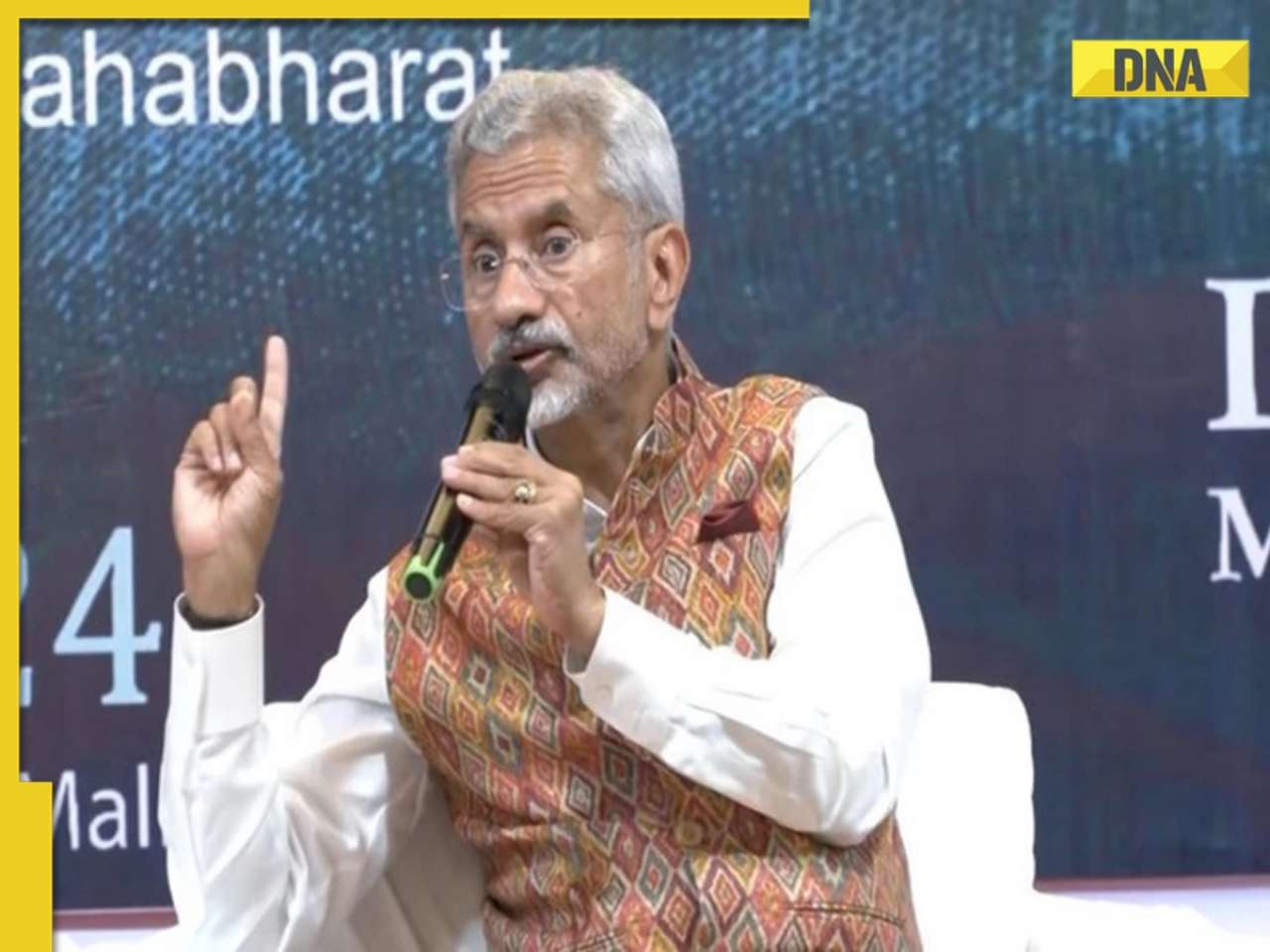





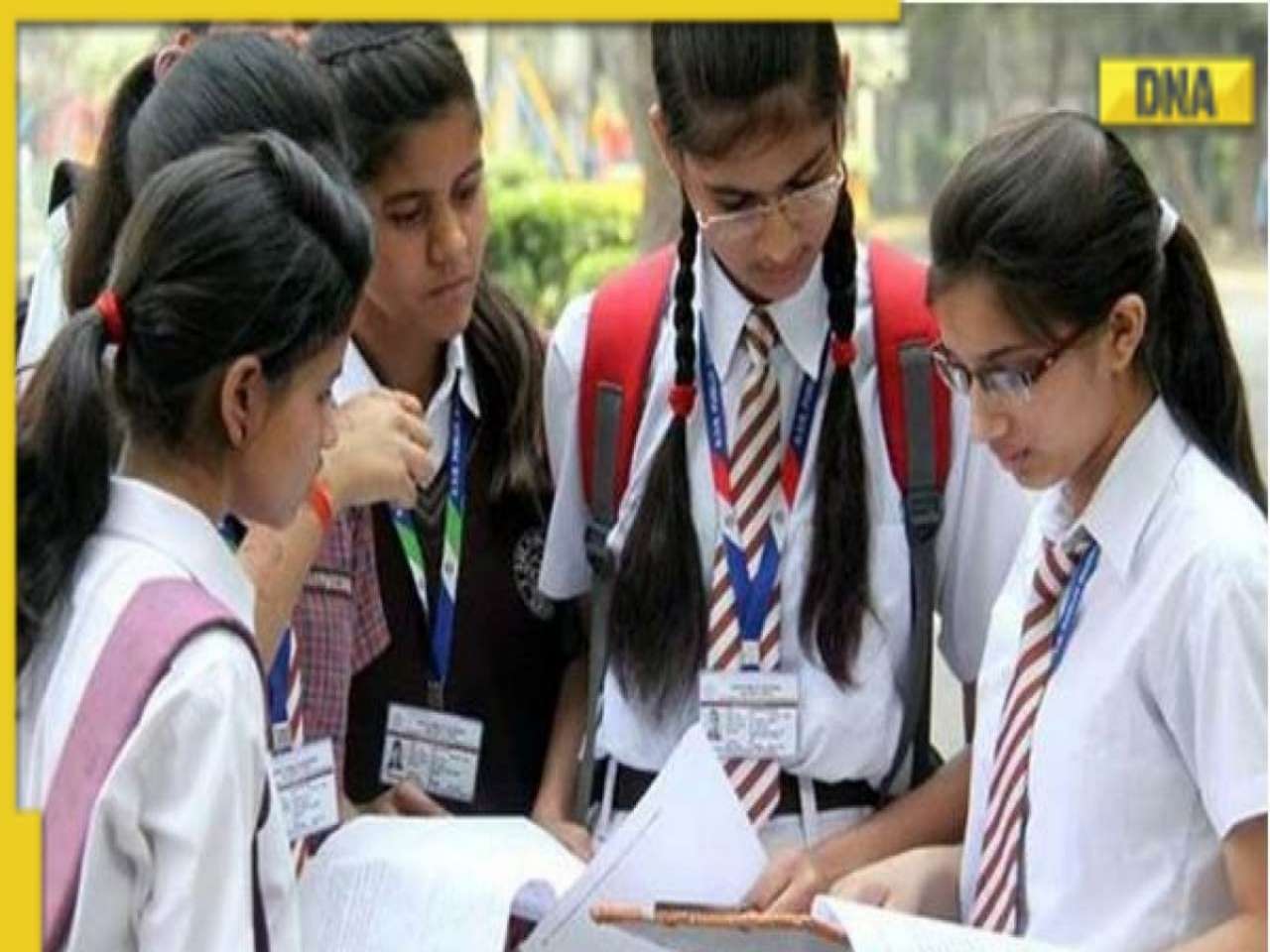

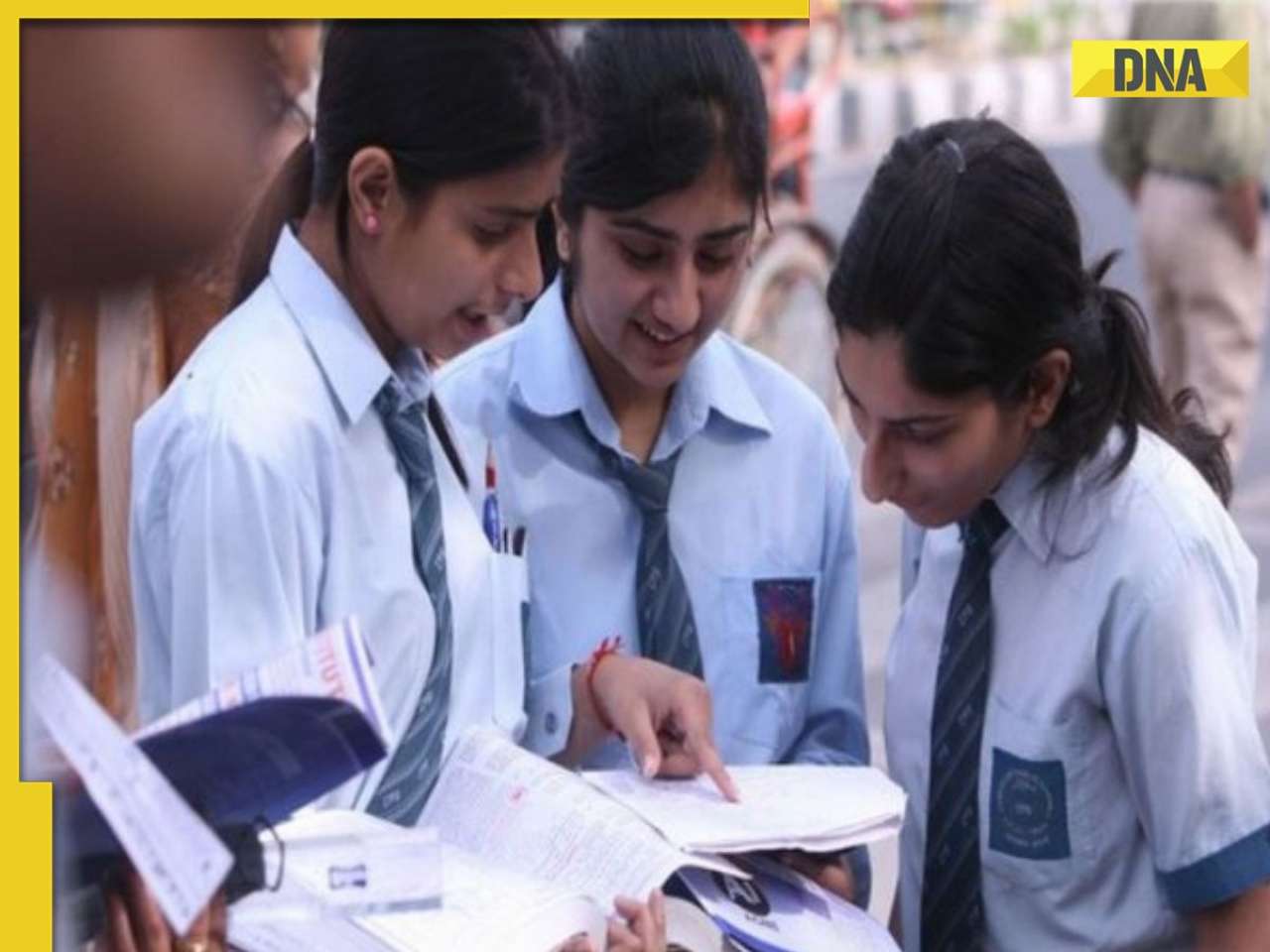




















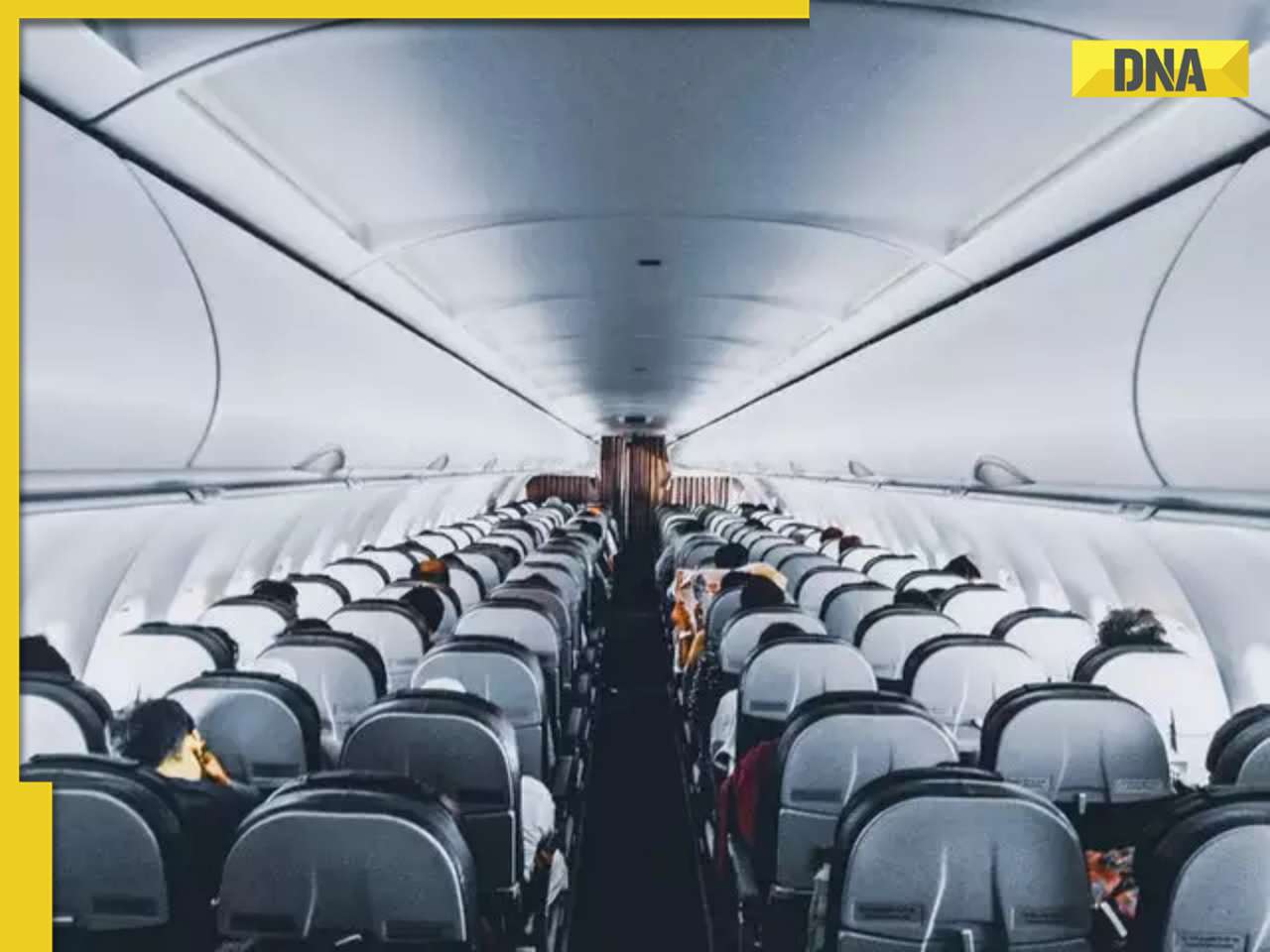


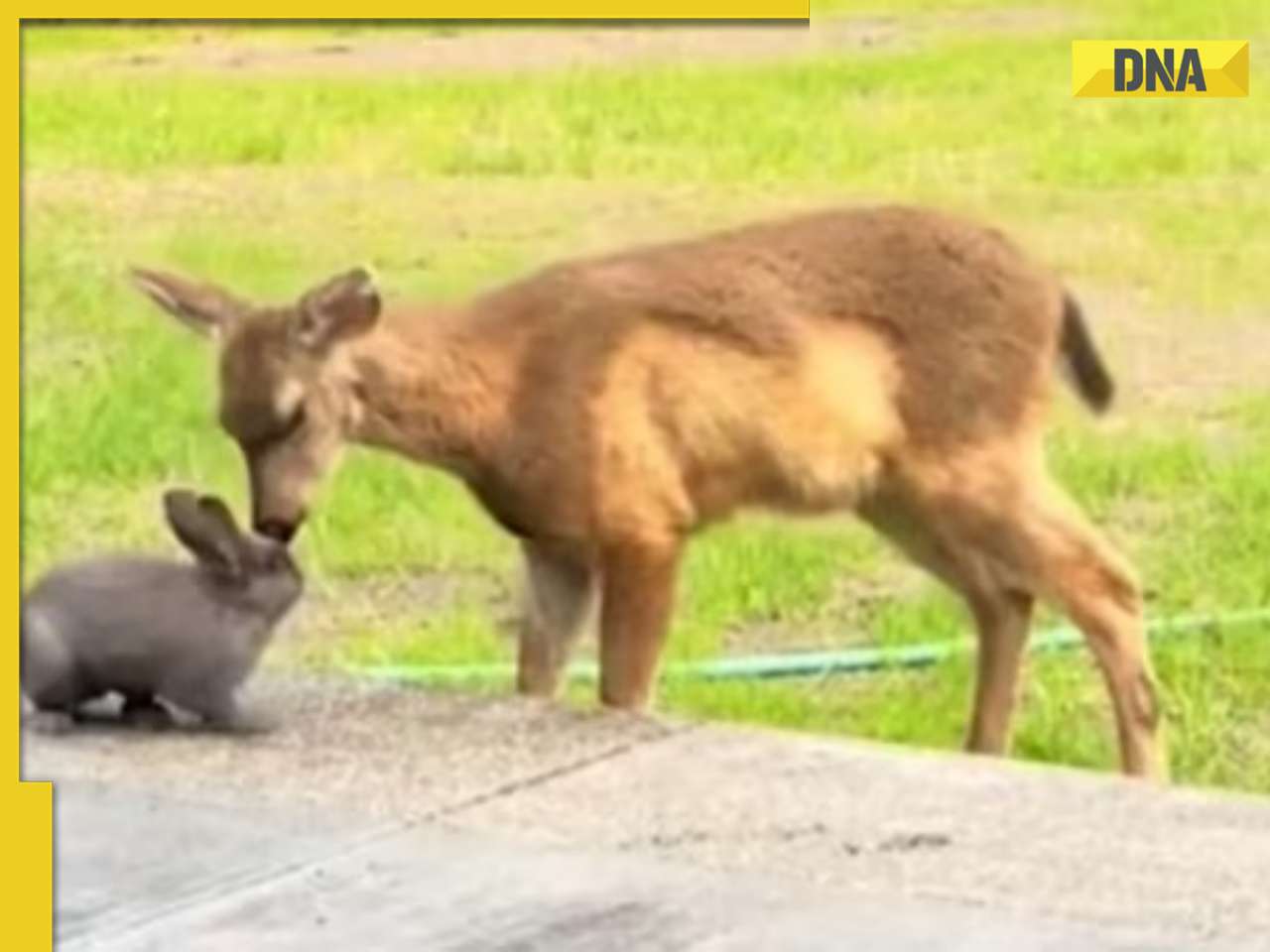













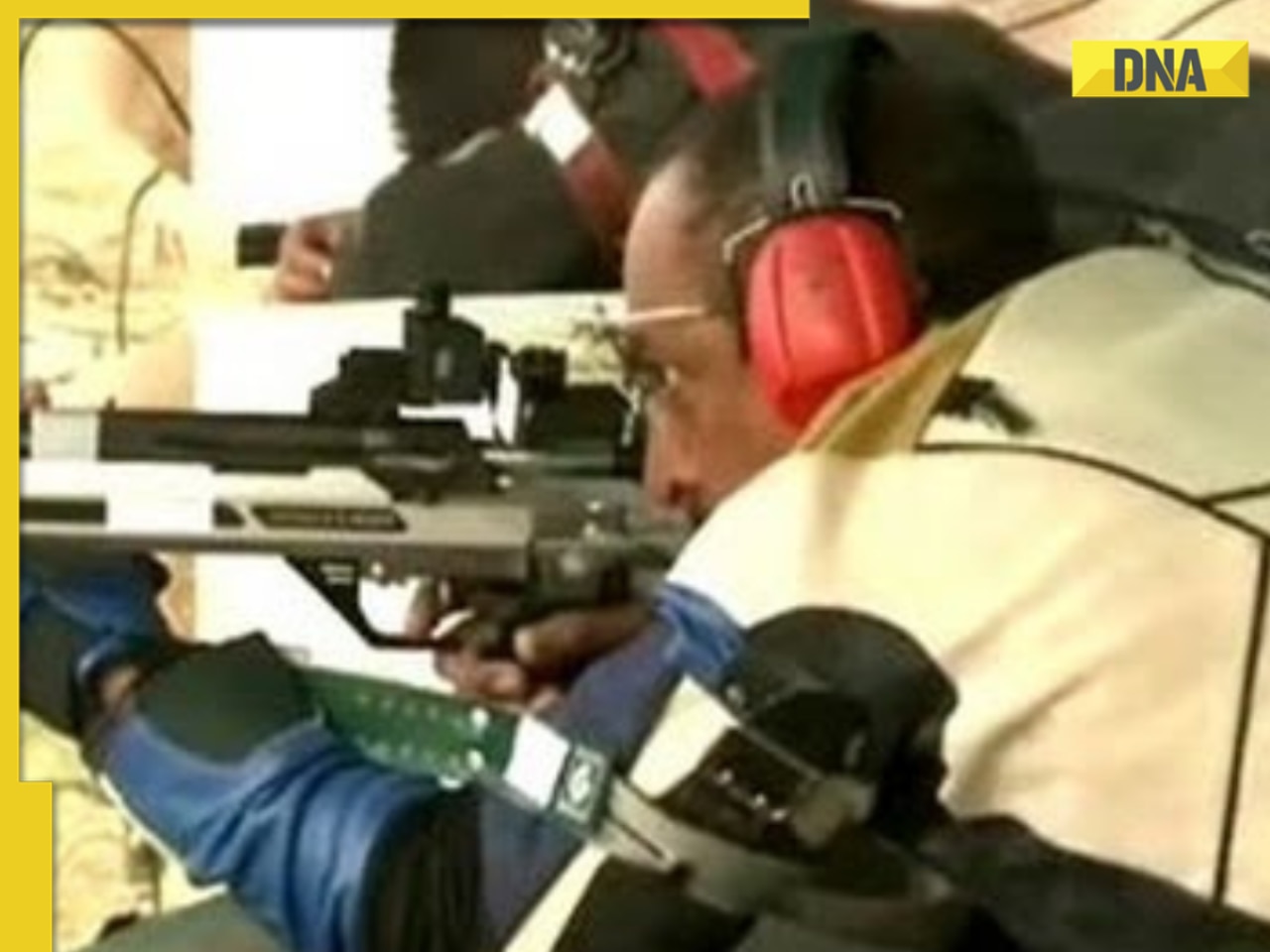

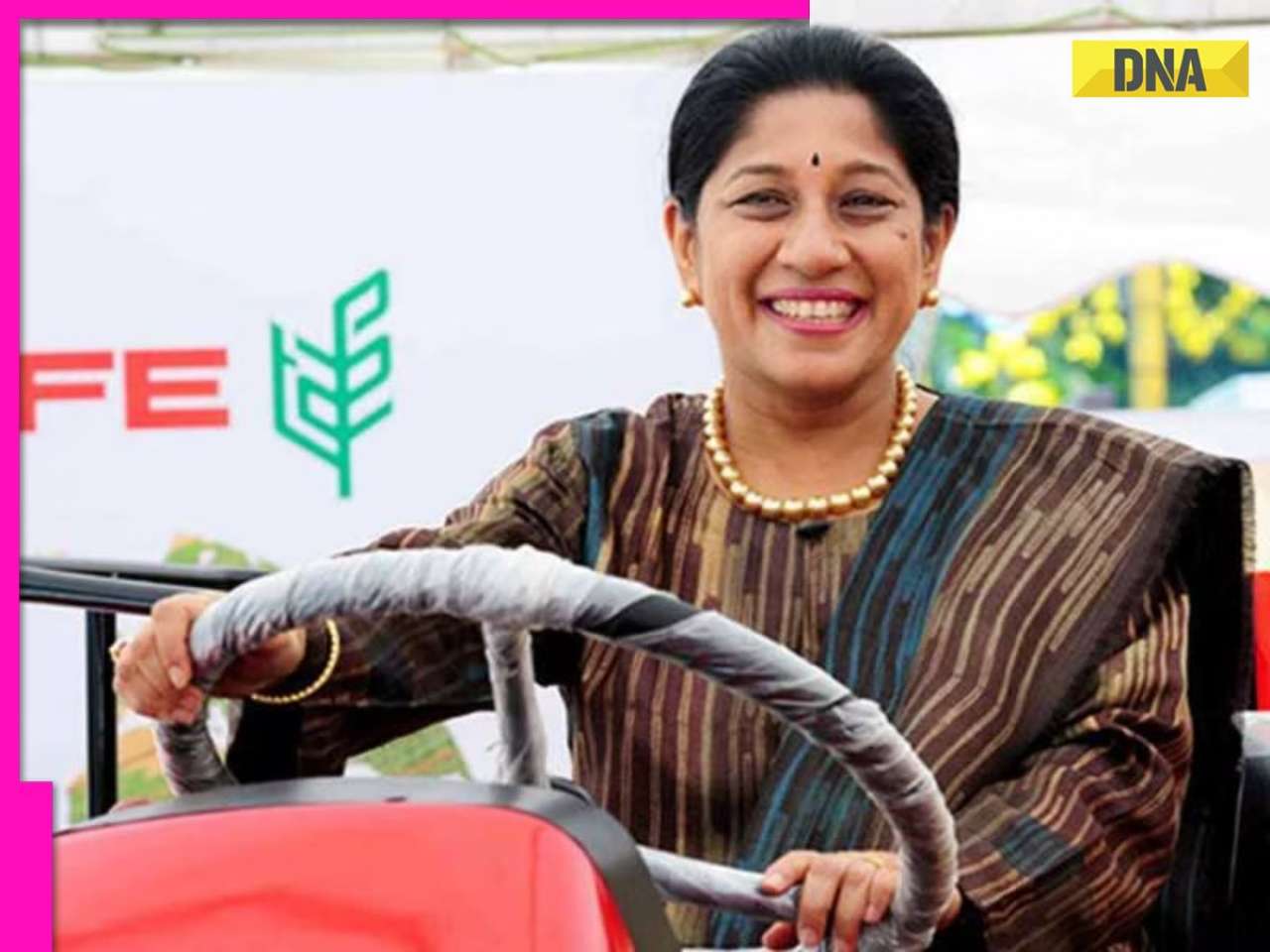




)
)
)
)
)
)